There’s something really sweet about your colleagues gathering at your desk to celebrate a birthday or a big win. These are the people you spend hours with, so it feels nice to share a little joy together. But what if suddenly, you’re the one expected to organize everything?
One person shared how they accidentally became the “birthday fund manager” at their office. On top of arranging cakes and cards, they had to chase people for their contributions, and sometimes didn’t even get the money owed. It started as a fun idea, but quickly turned into a juggling act. Keep scrolling to see how they handled the chaos and what happened next, it’s more relatable than you’d think!
Office events, like birthday celebrations, are a great way to bring the team closer together

Image credits: westend61 (not the actual photo)
An employee admitted to hating the task of running office birthday events single-handedly

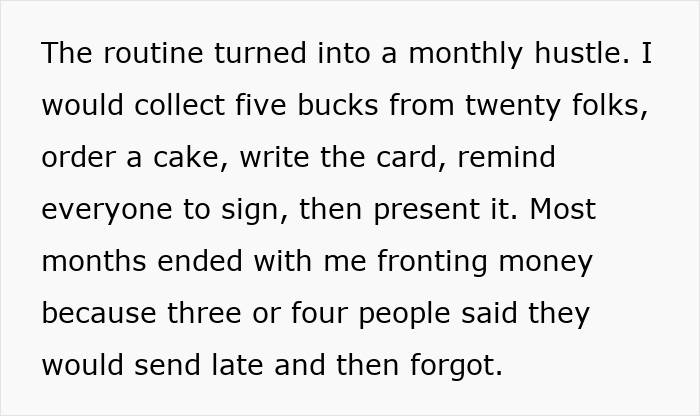
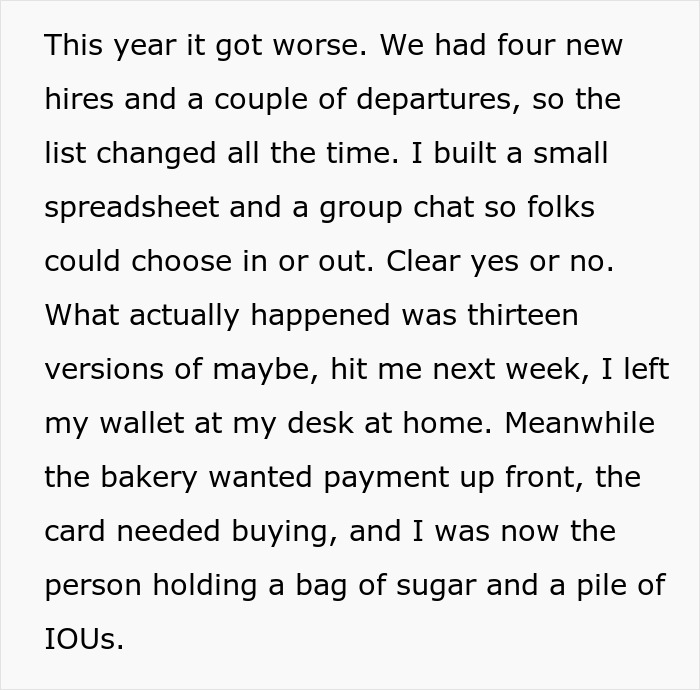


Image credits: guyswhoshoot (not the actual photo)
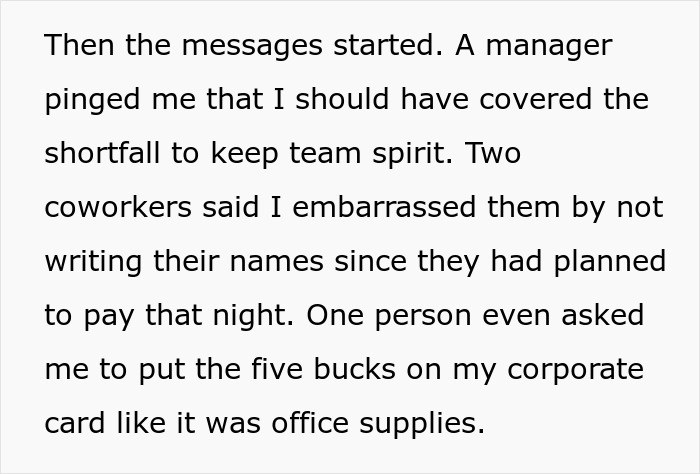
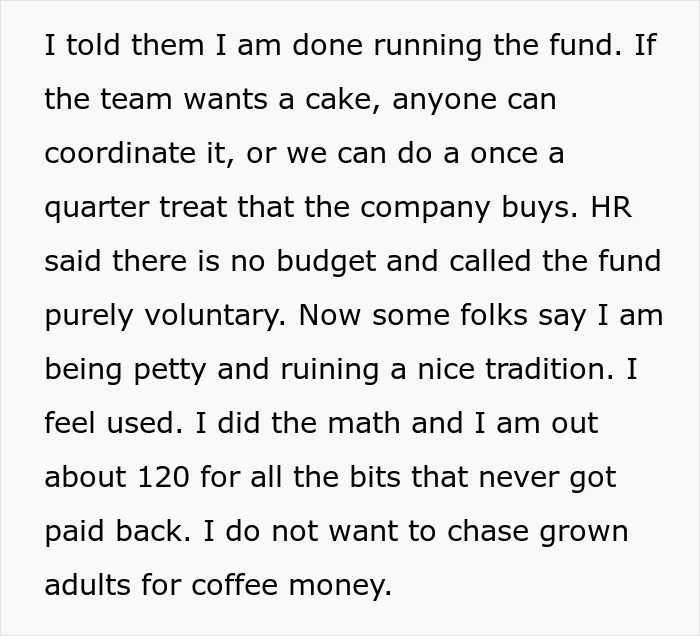

Image credits: inkwellfletcher
Extra hours for additional tasks can quickly become stressful and draining
Extra tasks are part of most employees’ daily reality. Sometimes it’s a small favor, other times a full-blown project that wasn’t in the plan. And let’s be honest, extra work isn’t always exciting. Many employees struggle to balance these unexpected duties with their regular workload. Deadlines pile up, priorities clash, and suddenly helping out feels like climbing a mountain. Yet, most people still say yes, even when they’re already stretched thin. Turning down extra work isn’t always easy, and it can feel like risking approval or reputation. The reality is, “helping out” often comes with invisible pressure.
LiveCareer’s Hidden Costs and Rewards of Extra Work report shows just how common this is. Nearly 77% of employees report being asked to take on work outside their job description at least once a week. For 36%, these requests come in daily, turning extra tasks into routine expectations. It’s no longer just an occasional favor, it’s part of office life. Employees constantly adjust schedules, juggle priorities, and rework energy levels just to keep up.
Motivations for taking on extra work vary. Some employees do it to impress their managers, earn a few extra brownie points, or demonstrate reliability. Others see it as a way to stand out or get noticed for recognition. Being helpful can build a reputation for being dependable and competent, which is appealing to many. Some take on additional responsibilities purely for team spirit, wanting to make sure everyone succeeds. For others, career advancement is the driver, extra work can lead to promotions or raises down the line. The reasons differ, but the result is the same: extra work keeps piling up.
Some employees take on extra work purely for personal satisfaction. The sense of accomplishment from completing a big task can feel rewarding. They may also enjoy learning new skills, building experience, or proving to themselves that they can handle more than expected. For them, extra responsibilities become a growth opportunity. However, even personal motivation doesn’t erase the strain of long hours or tight deadlines. Enjoyment and stress often coexist in a delicate mix. This makes managing extra work as much an art as a skill.
While there are definite perks, they aren’t guaranteed. Employees might earn recognition, monetary rewards, or promotions for stepping up. However, the flip side is stress and burnout, especially when tasks pile on faster than they can be completed. What starts as a simple “I’ll help out” can quickly turn into a relentless cycle of extra duties. Over time, this constant strain can affect motivation, mental health, and job satisfaction. The balancing act between reward and cost is tricky and often invisible to managers. Employees must navigate these pressures carefully.
Open communication with managers about workload helps prevent burnout
Communication and boundary-setting play a huge role in handling extra work. Employees who discuss workload expectations with managers often feel more in control. Saying yes strategically, prioritizing tasks, and clarifying responsibilities helps prevent burnout. It’s about balancing ambition with well-being, understanding which tasks are worth taking on, and which can be politely declined. Without these strategies, even motivated employees can end up overwhelmed. Clear communication also ensures that extra work feels fair and recognized. The goal is to thrive without burning out.
Ultimately, extra work is a double-edged sword. It can build reputation, teach new skills, and even open doors for career growth. At the same time, it can sap energy, cause stress, and blur personal boundaries. Every employee navigates this balancing act differently. Some embrace it, some endure it, and some carefully pick their battles. The key is knowing when to rise to the challenge and when to step back. With thoughtfulness, communication, and boundaries, extra tasks can become opportunities instead of obligations. It’s part of modern work life, quirky, challenging, and very human.
In this particular case, the author clearly felt frustrated by the extra responsibilities they never signed up for. They were putting in time, effort, and energy, only to feel underappreciated or overlooked. The imbalance between expectation and recognition can leave anyone feeling burnt out. It raises questions about fairness and boundaries at work. Have you ever felt pressured to take on more than your share? Situations like this highlight just how tricky workplace expectations can be.
Online readers were less than thrilled to learn that the author often had to cover part of the costs out of their own pocket

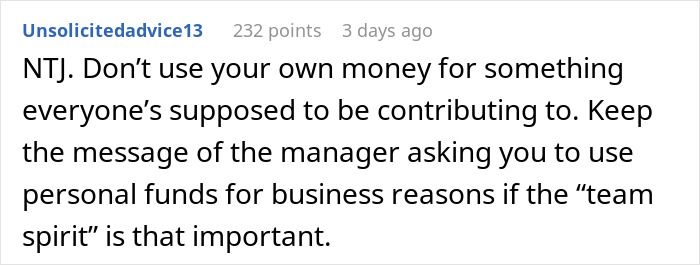
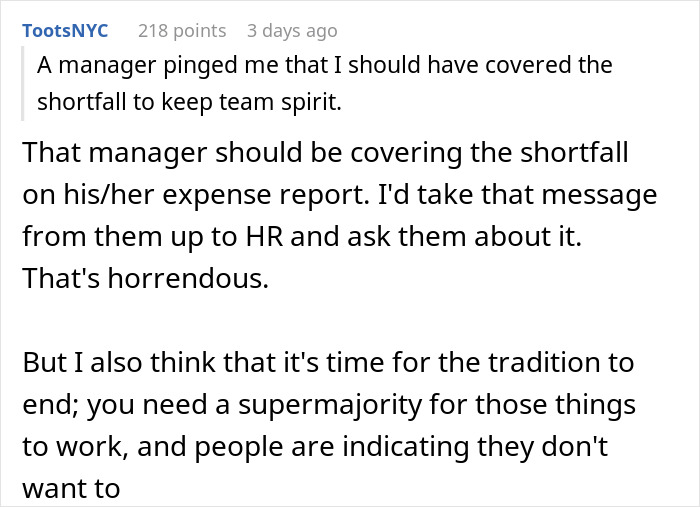


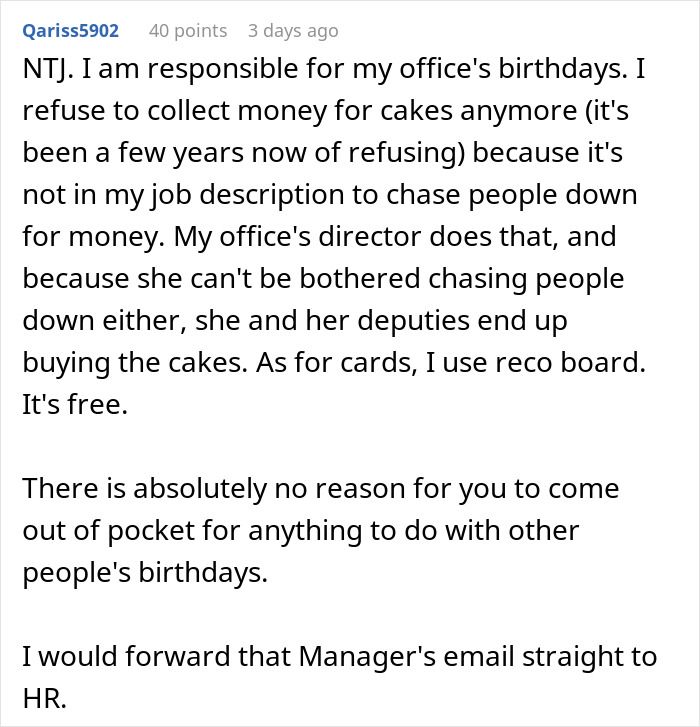

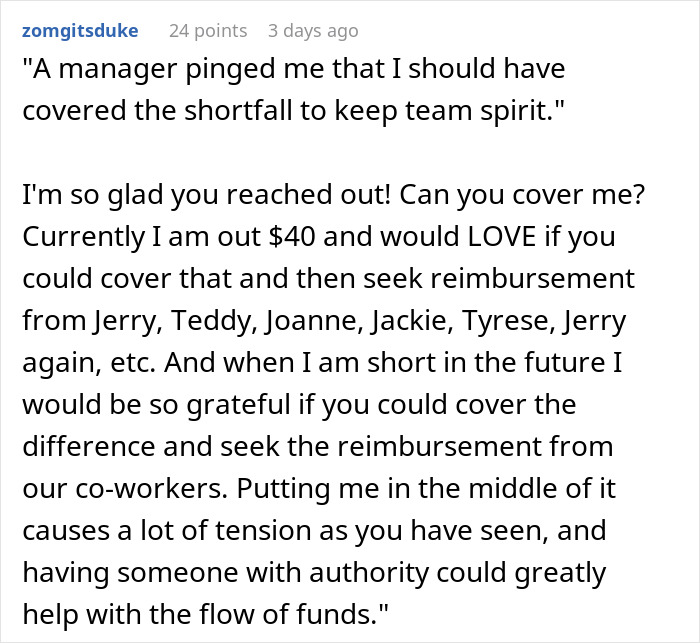

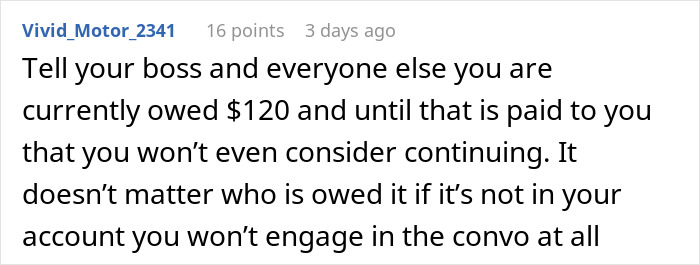


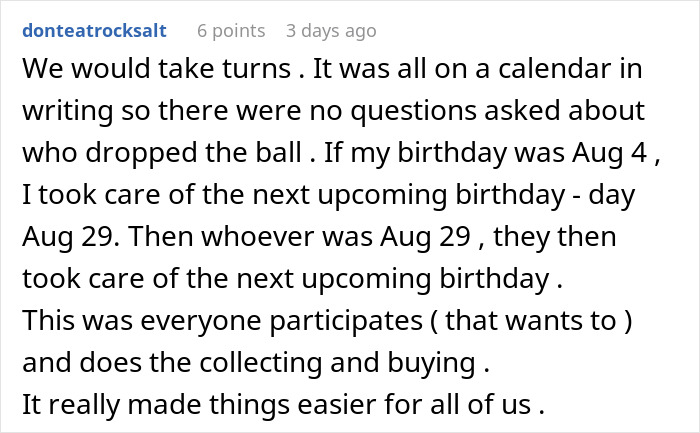
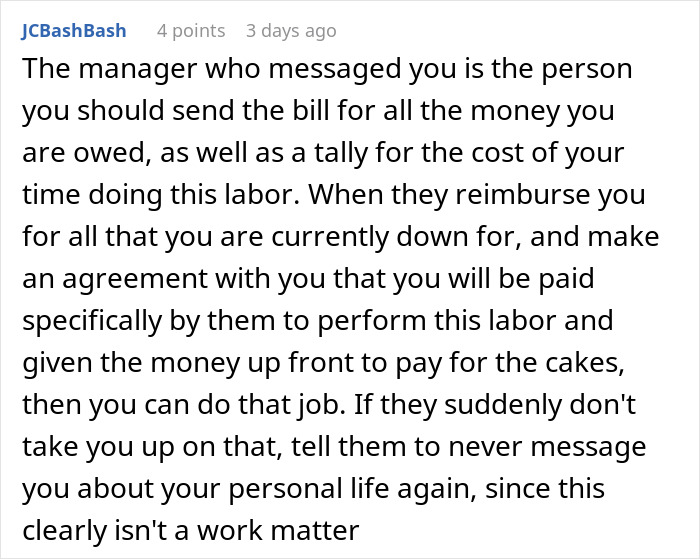
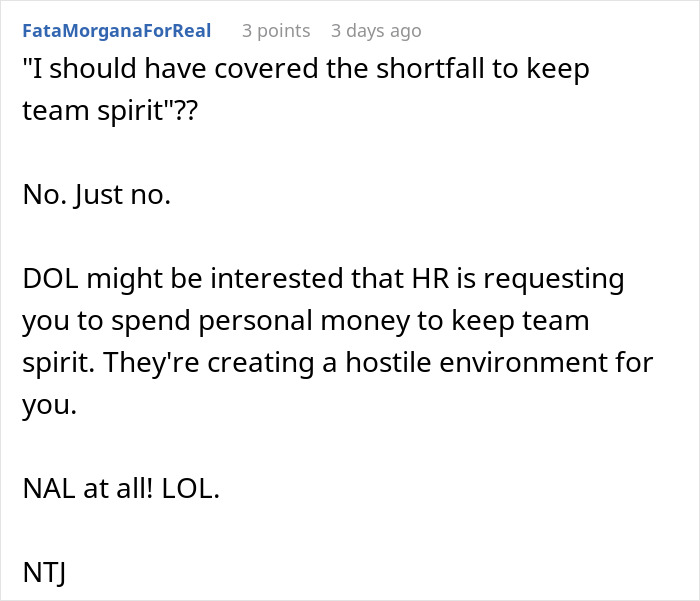








from Bored Panda https://ift.tt/q2Ti7yJ
via IFTTT source site : boredpanda